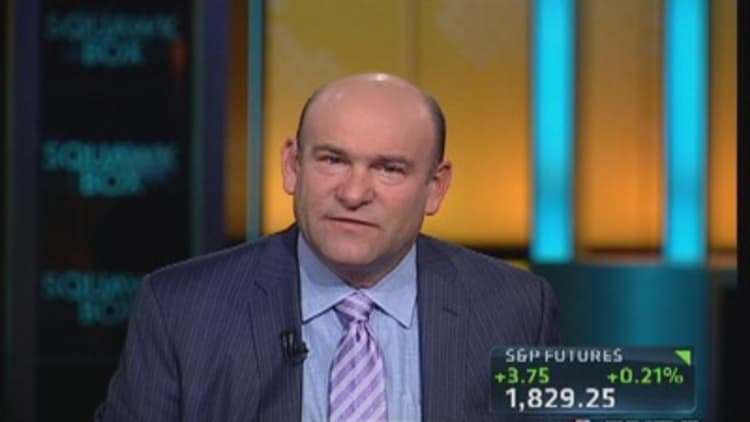Democrats this week are firing the first salvo of the 2014 campaign by pushing hard for an extension of emergency jobless benefits for the long-term unemployed. That effort will be followed up later this month by a fresh push to raise the current $7.25 federal minimum wage.
It's all part of a strategic effort by the party to paint Republicans as indifferent to the plight of the jobless and unconcerned about rising economic inequality, which has seen the bulk of income gains over the last several years go to the top slice of earners.
The effort is already putting the GOP in an awkward position. Republican leadership, including House Speaker John Boehner, has expressed support for extending the unemployment program, which would cover 1.3 million who lost benefits at the end of the year.
But conservative activist groups, who made life hellish for Boehner last year, are once again voicing strong opposition, highlighting a continuing rift the Republican Party is going to have to deal with all year long.
The Club for Growth, which backs conservative candidates in GOP primaries, strongly urged GOP senators on Monday to oppose the bipartisan Reed-Heller plan to extend the program.
(Read more: Congress returns with hefty to-do list)
"Congress should end the federal unemployment insurance program and return the authority back to the states, which already have programs in place," the Club for Growth wrote, noting it would include Reed-Heller in its voting record scorecard. "Absent this, Congress should pay for this extension by cutting spending elsewhere in the budget."
The statement left a window for Republicans to eventually support a bill to extend the program along with cuts to cover the $6.4 billion cost. But even that effort faces an uncertain future in the GOP House.
Once the jobless program issue is decided—probably with an extension of the program over strong conservative objection—Democrats will make a big push to lift the minimum wage from its current level of $7.25.
There is more uniform Republican opposition to this effort. But there is also widespread public support for an increase. A Gallup poll in November found that 76 percent of Americans would vote to hike the wage to $9.00 if the measure were placed on a national ballot.
Republicans will continue to argue that hiking the wage will hamper job creation and hurt Americans seeking low-wage jobs. But Democrats are armed with the preponderance of economic data suggesting hiking the wage by a couple of dollars will probably not have an adverse impact on jobs but would help lift some people out of poverty.
(Read more: Facing cuts, long-term unemployed brace for grim new year)
Still, Republicans are unlikely to support the move and will instead continue to train their message on reforming or repealing Obamacare. House Majority Leader Eric Cantor laid out this messaging effort in a memo to GOP colleagues on Friday. Cantor also promised to make a big push for more "spending reforms" in the spring, an effort likely to coincide with the need to raise the debt ceiling.
The problem Republicans face is that the Obamacare message may face tough sledding if sign-ups increase and Americans begin to enjoy new benefits under the law. They are on stronger ground when railing against the $17 trillion debt but the message may hold less punch as near-term deficits are declining.

The GOP's best hope to blow out the nascent Democratic effort to turn the 2014 midterm election into a referendum on growing economic inequality is the improving economy itself.
Many economists now believe that the U.S. is set for 3 percent growth or more in 2014 with the fiscal drag out of Washington fading, business capital expenditures rising and individual consumer balance sheets in better shape with rising home prices and equity markets.
(Read more: Bernanke: Tapering doesn't affect Fed's commitment to low rates)
If Friday's jobs report shows the unemployment rate dropping below 7 percent for the first time since 2008, which is a possibility, it becomes harder for Democrats to argue for an extension of what was initially billed as an emergency jobless benefits program during the worst of the recession.
And if wages and employment continue to rise throughout the year, lifting broad public sentiment about the direction of the economy, the Democrats' early efforts to make 2014 a year about the haves versus the have-nots could fall fairly flat.
—By Ben White. White is POLITICO's chief economic correspondent and a CNBC contributor. He also authors the daily tip sheet POLITICO Morning Money [politico.com/morningmoney]. Follow him on Twitter @morningmoneyben.


